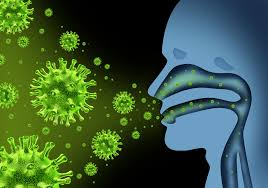
Delhi's Pollution Crisis Fuels Surge in Respiratory Illnesses Among Children
Delhi's choking air pollution, marked by dense smog and soaring levels of particulate matter, is emerging as a silent yet devastating threat to children’s health. In recent months, there has been a noticeable rise in respiratory and skin ailments among children aged 6 to 13. The toxic cocktail of vehicle emissions, industrial pollutants, and stagnant air has created a hazardous environment, leading to increased hospital visits for viral infections, asthma exacerbations, and allergy-related conditions.
According to Dr. Sanjay Wazir, Medical Director (NCR) - Neonatology and Pediatrics at Motherhood Hospitals, Gurgaon, the situation is alarming. He highlights the sharp uptick in cases of respiratory syncytial virus (RSV), influenza, and pneumonia, which are manifesting in children with symptoms such as runny noses, persistent coughs, fevers, and fatigue. For those with pre-existing conditions like asthma, the smog has only intensified their struggles, causing severe exacerbations. Compounding these issues are skin-related problems, including dry skin, rashes, and allergies, which have also seen a significant rise.
The ongoing health crisis has placed immense pressure on families and medical practitioners. While recent school closures have slightly reduced the number of cases, Dr. Wazir notes that hospitals continue to treat multiple children daily for pollution-related conditions. He emphasizes that vigilance and timely medical intervention are crucial, especially when dealing with symptoms that could escalate into more severe complications.
Parents are being urged to take proactive measures to safeguard their children’s health during this period. Ensuring good personal hygiene, providing a nutritious diet, and encouraging adequate sleep are fundamental steps to strengthening a child’s immunity. Dr. Wazir also stresses the importance of keeping children indoors during periods of poor air quality and using air purifiers to minimize exposure to harmful pollutants.
Vaccinations, particularly for pneumococcal diseases and influenza, remain a vital line of defense, especially for children at higher risk of respiratory complications. Those with asthma are advised to have their medication and inhalers readily available to manage sudden flare-ups. For children experiencing skin problems, parents should seek timely medical advice and use only doctor-approved products.
Reflecting on the broader impact of pollution, Dr. Wazir underscores the importance of community-wide awareness and systemic action to address Delhi’s worsening air quality. He notes that while preventive strategies can provide immediate relief, long-term solutions to mitigate pollution are essential to safeguard future generations.
The rise in respiratory illnesses among children serves as a sobering reminder of the direct and indirect toll of air pollution on vulnerable populations. With collective effort and sustained focus, there is hope to protect the health and well-being of Delhi’s youngest residents.